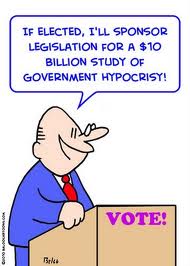 In these days of financial crisis, austerity and expenses scandals, one doesn’t have to go far to find citizens complaining that our democracy is in decline. Most people do this from the comfort of their armchairs, shouting at Question Time or changing the TV channel when a particularly annoying politician crosses their screen. However, the founder of the Independent newspaper, Andreas Whittam Smith, is prepared to go one step further.
In these days of financial crisis, austerity and expenses scandals, one doesn’t have to go far to find citizens complaining that our democracy is in decline. Most people do this from the comfort of their armchairs, shouting at Question Time or changing the TV channel when a particularly annoying politician crosses their screen. However, the founder of the Independent newspaper, Andreas Whittam Smith, is prepared to go one step further.
Yesterday, Whittam Smith announced a plan for a new British movement to ‘restore democracy’. He argued that the UK’s current MPs are drawn from a narrow set of backgrounds – law, medicine, journalism and, of course, political hackery. In this view, we are left with a cohort of politicians more suited to marketing themselves than running the country.
Whittam Smith has a big idea to solve this problem. He hopes to recruit a set of local notables – people who have have ‘done something with their lives, and have established themselves in their communities’. This group of candidates would announce ‘easy-to-understand policies for the problems people worry most about, such as unemployment, crime, immigration, care of old people, NHS, welfare reform, Europe.’ These policies would be made by ‘participative policy making, lasting a year, and using the digital media to ensure openness and legitimacy.’ Candidates would stand for one parliamentary term, a limit that would encourage the participation of talented people with experience outside politics, and also shut the door on ‘career politicians’.
Few would disagree with Wittam Smith’s concern about ‘career politicians’ being drawn from a narrow range of backgrounds. Since Greek and Roman times, people wished to be represented by the brightest, best and most honest. Unfortunately, the reality has been consistently less appealing. Any initiative that encourages good people to enter politics, and provides them with the necessary organisational support, has to be applauded.
That said, Whittam Smith’s proposal is startlingly naive in places. He argues that policy-making will be easy because ‘ideological differences are small these days, even between the established parties, which often magnify what are in effect small distinctions to make themselves stand out.’ Of course, Whittam Smith’s local notables would agree a set of policies on areas as uncontroversial as immigration, Europe, and how to balance the UK’s wayward budget. No problem there, then.
Whittam Smith underestimates how hard most politicians and parliamentary candidates actually work. In his view, local notables can participate in policy-making on-line, give a small donation (maximum £50), put their name on a ballot paper, then serve in Parliament for a maximum period of five years. Not for them, years of organising volunteers, tramping the pavements of their constituency and spending every last penny of their spare cash on petrol, refreshments for volunteers and raffle tickets at the local fete. Perhaps Whittam Smith believes that the public will be so grateful to see a good honest local notable entering the fray that these demands will be waived. This is unlikely.
Although the idea for new apolitical movement is novel in the UK, it is not uncommon on the continent, particularly in the new democracies of central and east Europe, where ‘traditional parties’ constantly compete against ephemeral movements of local notables. Such movements were initially greeted with enthusiasm by voters, but in every single case they collapse within two terms or develop traditional party structures. Rather than being immune from ego conflicts, parties of local notables are particularly prone to such problems because they have no dispute resolution or policy making structures. And voters make no allowances for local notables’ lack of political experience, passing harsh judgement on those who stumble over their words in the media, fall out with their colleagues in public or have to pick their drunken teenage son out of a gutter on a Sunday morning.
Whittam Smith’s ideas are a helpful addition to the debate on revitalising our democracy. He is quite right that we need to draw a wider range of people into public life, not just at the parliamentary level but also in local democracy. But Whittam Smith would also do well to acknowledge that being a politician isn’t as easy as it looks, and divisions over policy are as stark as ever in these times of crisis.




No Comment